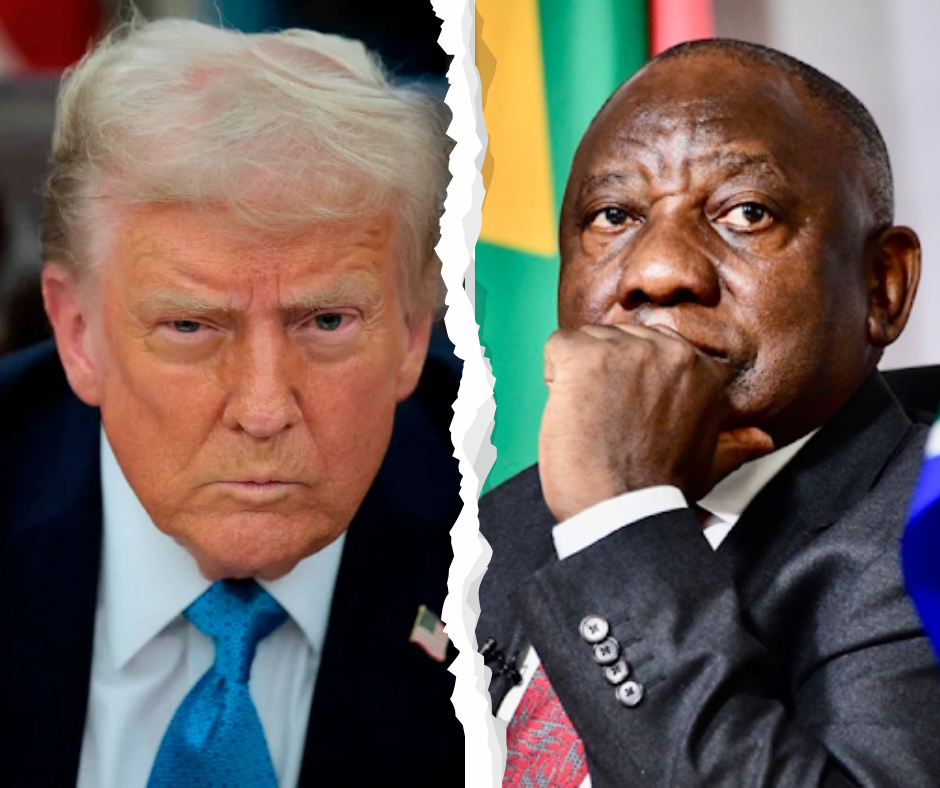
The crisis in our relationship with the US has emerged at a time when ANC support is collapsing — and often appears to be in freefall by the party’s own hand, writes Imraan Buccus.
South Africa finds itself in a potentially dangerous situation as hostility from the US government escalates. If tensions deepen, the consequences could be severe. In the worst-case scenario, we may face a crisis on the scale of those experienced in Zimbabwe or Venezuela.
Avoiding that trajectory will require clear thinking and careful strategic planning. The unpredictability of the Trump administration presents serious risks, and we must assess the global balance of power with realism. While the US empire is in long-term decline, it retains immense economic, military, intelligence and media strength. South Africa, by contrast, is politically divided, economically fragile, and poorly equipped in the communications sphere. Although our case at the ICJ has gone some way toward restoring international credibility, the reputational damage of the Zuma era remains. In global terms, we are very weak — they are very strong.
We face both immediate urgent challenges and long-term strategic questions. The immediate task is to avoid unnecessary escalation while standing firm on our positions regarding Palestine and land reform. We must assert national sovereignty in a calm and principled manner, while steering clear of the kind of reckless provocations that could trigger a level of retaliation we are not in a position to withstand.
The first step must be to put an end to the kinds of shallow, populist posturing we have seen from figures like Gwede Mantashe and Fikile Mbalula. While such performances may win headlines, they do nothing to serve the national interest — in fact, they place it at risk.
Julius Malema’s far more inflammatory conduct is even more dangerous. It has become a gift to figures like Elon Musk, Marco Rubio, Donald Trump and AfriForum. His statements may feed a personal desire for attention, but they heighten the threat to the country without offering anything in return to those he claims to speak for. This kind of opportunistic and reckless grandstanding must be brought to an end.
A well-coordinated communication strategy is now an urgent national priority. We need to correct the disinformation around alleged Afrikaner persecution and present a clear, measured account of why land reform matters, how it will be pursued within the law, and why our stance at the ICJ is rooted in a principled commitment to international law. Given the power Trump and Musk wield through their control of X, we need a world-class communications infrastructure and strategy that can hold its own.
Diplomatic work is equally pressing. We must build stronger relationships with Europe and with rational voices within the US — across politics, the media and civil society. Simultaneously, we must deepen ties across the global South to reduce our exposure to the whims of a hostile US administration. Our G20 presidency presents one potential platform for this work. It should be seized with urgency and purpose.
Domestically, we must recognise that the white right — both Afrikaans and English-speaking — is openly aligned with Trump. This means we face a challenge on both the international and domestic fronts. As offensive as many find the politics of organisations like AfriForum and BizNews, they are protected by constitutional rights, and any perception that these rights are being undermined — even in rhetoric — would only compound the crisis.
At the same time, we must take steps to prevent the white right from presenting itself as a voice that represents the majority of whites. This requires active engagement to win over moderate and progressive white voices to the cause of national sovereignty. Whether the ANC acknowledges it or not, white opinion will carry weight with Trump’s administration and with broader right-wing forces in the US. It is therefore critical to isolate the right-wing fringe, rather than allow it to posture as a voice that represents the majority of whites.
It is also essential that the ANC begins to restore its legitimacy at home. No government can defend the country internationally while losing the support of its own people. Practical steps like repairing traffic lights, fixing potholes that have become dongas, and ensuring a reliable supply of electricity and water would go a long way. Tackling corruption remains urgent. Reducing food prices, achieving some kind of economic growth, and bringing down unemployment are vital to stemming the party’s further collapse.
We must also think beyond the current moment. The crisis in our relationship with the US has emerged at a time when ANC support is collapsing — and often appears to be in freefall by the party’s own hand.
There seems little doubt that the ANC will lose Johannesburg — and lose it badly. The city’s rapid decline is plain to see in failing infrastructure, worsening service delivery and visible social distress. The governing party’s inability or unwillingness to intervene has eroded support to the point where defeat now appears inevitable.
Nationally, the outlook is equally grim. Polls currently place the ANC’s support at around 30%. With no real growth, mass unemployment, and ongoing brazen corruption, further decline seems likely before the 2029 election.
As a result, we face deep uncertainty in both national and international politics. What happens at home will shape our global position. The two primary forces positioned to capitalise on the ANC’s decline are the white-dominated liberal DA, which would press for full submission to Trump’s demands, and the authoritarian and kleptocratic nationalism of MK and the EFF, which would drive us into the kind of siege conditions seen in Zimbabwe and Venezuela. Both options are bad options — and both would tear apart what remains of the ANC.
In this moment of growing peril, we need clarity, discipline and purpose. The country cannot afford theatrics, impulsive rhetoric, or the politics of personal ambition. What is required now is a broad national consensus on defending our sovereignty with strategic calm, rebuilding our credibility at home and abroad, and laying the groundwork for a new political horizon.
If we are to navigate the storm ahead, we must do so with seriousness and unity — or risk being overwhelmed by forces far stronger than us.
*Dr Buccus is the Editor of Al-Qalam.










